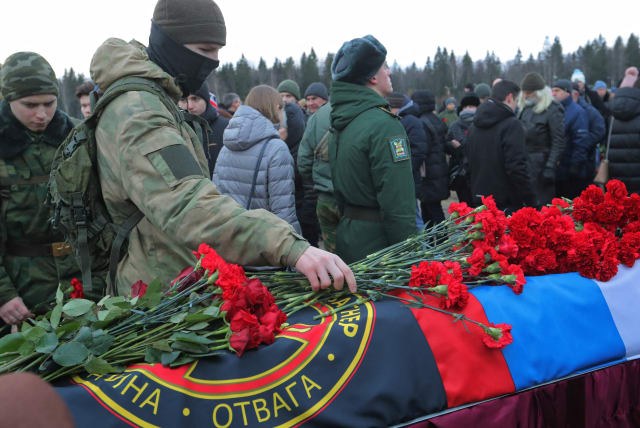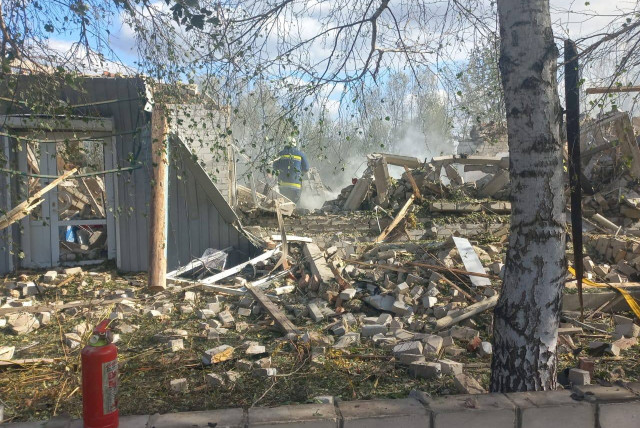Ukraine has lost 20% of all scientists, research capacity due to Russia War

The study showed that Ukrainian scientists are getting more and more disconnected from the Ukrainian scientific community, proving dangerous for the future of Ukraine and Ukrainian research.
Not only did Ukraine lost hundreds of thousands of residents and soldiers, buildings, infrastructure, museums and libraries since the Russians invaded on February 24, 2022. It also lost about a fifth of its scientists who have fled to other countries and of its pre-war scientific research capacity.
A new study on the subject has just appeared in the journal Humanities and Social Sciences Communications under the title “The effects of war on Ukrainian research.” The authors conducted an online survey of 2,559 scientists conducted between September 21 and December 8 of last year. The target population included research-active employees of higher education institutions and public research organizations who worked in Ukraine when the war struck.
Even if the war would stop today, it seems that Ukraine would lose about seven percent of its scientists who wouldn’t return, the researchers wrote.
Fleeing from Ukraine
Until the early morning of the invasion, Ukrainian scientist Olena Iarmosh did not believe there would be a Russian invasion of Ukraine. She grew up and had settled in Kharkiv, her beloved city in Eastern Ukraine and only 40 km away from the Russian border, where she worked for more than 16 years as a lecturer in higher education before fleeing to Switzerland. At 5 AM, she awoke to the sounds of bombing, hoping that they were merely the loud sounds of technical maintenance at the local power plant.
“My city looks worse now after the bombing than after two occupations by German troops,” said Iarmosh, who remained steadfast in her apartment throughout the bombardment for nine days before fleeing westward, first in western Ukraine, until the bombing started there too and then to Switzerland. All that time, she continued her teaching duties online, and eventually landed a temporary position at EPFL (the Ecole Polytechnique Federale de Lausanne, with College of Management Prof. Gaétan de Rassenfosse.
In the meantime, de Rassenfosse and his team set out to quantify the impact of the war’s influence on Ukrainian research, with one of the most extensive surveys yet, analyzing the responses from roughly 2,500 Ukrainian scientists in autumn 2022. “Our survey shows that Ukraine has lost almost 20% of top scientists, like Olena,” explained de Rassenfosse, who was able to hire Iarmosh to work in his lab as a visiting professor.
“Many of these emigrant scientists are under precarious contracts at their host institutions. Of the scientists who stay in Ukraine, if still alive, about 15% have left research, and others have little time to devote to research given the circumstances of war.”
The EPFL researchers found that research capacity in Ukraine, that is time directly devoted to research activity, is down 20%. The study reports that 23.5% of scientists still in Ukraine have lost access to critical input for their research, and 20.8% cannot physically access their institution. The research team highlight in the study that “the provision of more and longer scholarships emerges as a paramount concern” for migrant scientists. As for scientists still in Ukraine, the study suggests that “institutions across Europe and beyond can offer a host of support programs, such as remote visiting programs, access to digital libraries and computing resources, as well as collaborative research grants.”
“From a purely academic perspective, moving abroad may actually be an opportunity to improve as a scientist, as our survey shows that being abroad means exposure to novelty,” continued de Rassenfosse.
Iarmosh continues, “Despite the war, Ukraine is doing a lot to keep researchers and scientists employed. Education in eastern and southern Ukraine is fully online. Ukrainian universities still want to keep us. They invite us to activities, ask us to supervise and continue research. It is a great privilege for all lecturers and researchers. They are trying to maintain a university education for youth.”
The study showed that Ukrainian scientists are getting more and more disconnected from the Ukrainian scientific community, and this is dangerous for the future of Ukraine and Ukrainian research, warned de Rassenfosse. “Policymakers must anticipate the renewal of the Ukrainian research system for scientists to return, and to train the next generation of Ukrainian scientists.”
“I am the biggest patriot of my city,” concludes Iarmosh. “Kharkiv is beautiful, the people, the mentality, the architecture, it is clean. I love Kharkiv. But the human loss has been colossal. Physically and mentally strong, patriotic, open-minded men stayed behind, fighting to protect Ukraine. We can rebuild buildings. It takes many years to build a new generation.”
Jerusalem Post Store
`; document.getElementById("linkPremium").innerHTML = cont; var divWithLink = document.getElementById("premium-link"); if (divWithLink !== null && divWithLink !== 'undefined') { divWithLink.style.border = "solid 1px #cb0f3e"; divWithLink.style.textAlign = "center"; divWithLink.style.marginBottom = "15px"; divWithLink.style.marginTop = "15px"; divWithLink.style.width = "100%"; divWithLink.style.backgroundColor = "#122952"; divWithLink.style.color = "#ffffff"; divWithLink.style.lineHeight = "1.5"; } } (function (v, i) { });

